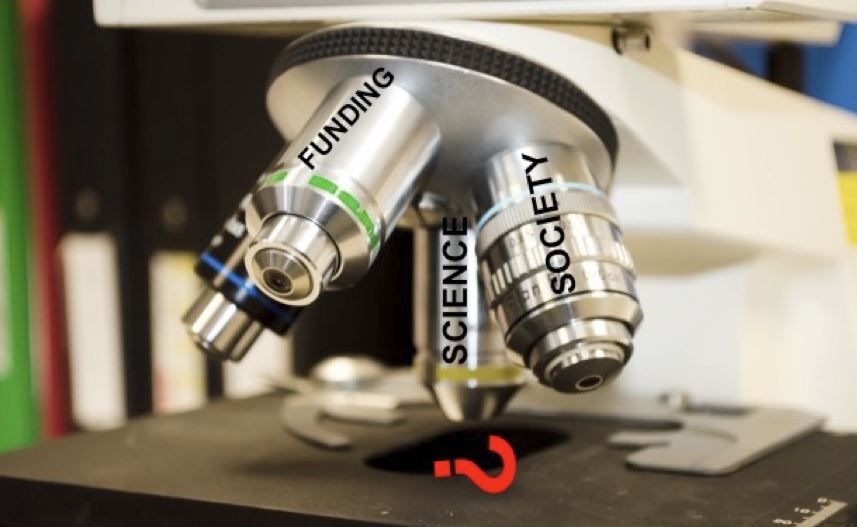How Can We “Trust The Science” When Medical Journals Are Compromised?
Our Institutions Are Broken!
Peer-reviewed medical journals are supposed to provide objective, scientific evidence to the medical community on the safety and efficacy of medical treatments, but we face huge problems when it comes to conflicts of interest that compromise their objectivity.
In 1992 The Annals of Internal Medicine published an article reporting that 44% of the drug ads in medical journals were written in a way that would lead doctors with no other source of information to prescribe improperly. It also reported that 92% of these ads were in violation of FDA rules. After publication, the pharmaceutical industry withdrew many adverts from The Annals… “to flex its considerable muscles when it felt its interests were threatened,” said the editor, Dr. Fletcher, writing in The Lancet in 2003. These sorts of hijinks give journals a clear incentive to reject unfavorable studies. Medical journals are also inclined to give precedence to favorable articles rather than critical ones because publishing studies sponsored by large drug companies on new “blockbuster” drugs will gain a journals publicity and increases the value of their advertising spaces. Besides, drug manufacturers only buy reprints of favorable articles on new drugs they have patents on, because unfavorable articles can’t be distributed to doctors as marketing tools. This can amount to more than $1 million per article. A new drug is not necessarily a better drug. In fact, we have a lot more information on the safety profile and efficacy of old treatments. But all the incentives push towards the promotion of new drugs that are still in patent because that’s where the most money is to be made, and so that’s where most of the funding comes from.
Journals will rarely print articles that debunk existing treatments, even although negative results are just as important as positive ones, and it’s extremely important that the public knows if existing treatments prove less effective or less safe than originally thought. Failures to prove a hypothesis are rarely even offered for publication, let alone accepted. “Negative results” now account for only 14% of published papers, down from 30% in 1990. It’s not sexy, and it doesn’t pay. In fact, it can cost advertisement money – so there are plenty of poor treatments still being prescribed.
Natural Blaze is Google-Free — We Need Your Support
Contribute Just $1 Per Month at Patreon to Aid the Cause of Health Freedom
This was brought into focus with the Vioxx scandal, when Merck cooked the books and omitted three heart attacks, as well as strokes and blood clots, in test subjects that took their drug. The New England Medical Journal and The Journal of the American Medical Association published safety information about Vioxx that was false, misleading, and downright fraudulent that made people to think Vioxx was a lot less dangerous than cheaper alternatives that had been on the market for years, but it wasn’t. Then, even after it became clear that Vioxx caused heart attacks at alarming rates, the NEMJ refused to update the article, one representative stating on the radio: “We can’t be in the business of policing every piece of data we put out.”
The negligence of the NEMJ led to incredible harm and loss of life, 140,000 heart attacks and 60,000 deaths by the FDA’s official figures. Nonetheless they profited from it, making over $700,000 from selling reprints of the misleading article to Merck, so they could issue nearly a million copies to doctors and propagandize them into prescribing a drug that should have long-since been banned. Most of the reprints were sold after it was known the article was problematic!
We are meant to have courts to litigate against wrongdoers, but, as we found with Pfizer’s Neurontin and GlaxoSmithKline’s Paxil/Seroxat, the penalty for the crime amounts to little more than a kickback to continue the practice of scientific fraud. When Rezulin was withdrawn for causing kidney and liver failure, Pfizer was sued for $750 million. That sounds like a lot, but to put it in perspective, Pfizer bought their rival Wyeth for $64 billion. Obviously, they intend to profit by more than that from the acquisition. Pfizer also pleaded guilty to the felony of marketing its arthritis drug Bextra “with the intent to defraud or mislead” and agreed to pay “a criminal fine of $1,195 billion, the largest criminal fine ever imposed in the United States for any matter.” Even so, nobody went to jail, and the documents showing how Pfizer feloniously misled American doctors into prescribing Bextra remain sealed. John Abramson, author of Sickening (2022), was involved as an expert witness in the litigation, and when pressed to share what Pfizer had actually done, he told a famous podcast host: “I know, but I can’t tell you!”because the court made him sign a nondisclosure agreement! Here we have a clear case of convicted felons, defrauding us outright, risking our lives in plain view – and we’re not even allowed to know what they did! Even once they’ve been proven guilty!
People would like to think these are isolated incidents – but nothing has changed in the incentive structure of the system itself to give us any reason to think things will change. Until the very institutions we depend upon for medical information are reformed we will continue to have reasons to doubt the science.
- Get my free ebook 7 Big Pharma Myths Debunked
- Coach with me to reach your potential – book a Freedom Warrior consultation
- Join the Be Yourself and Love It! community on locals.com
Source: The Conscious Resistance Network



